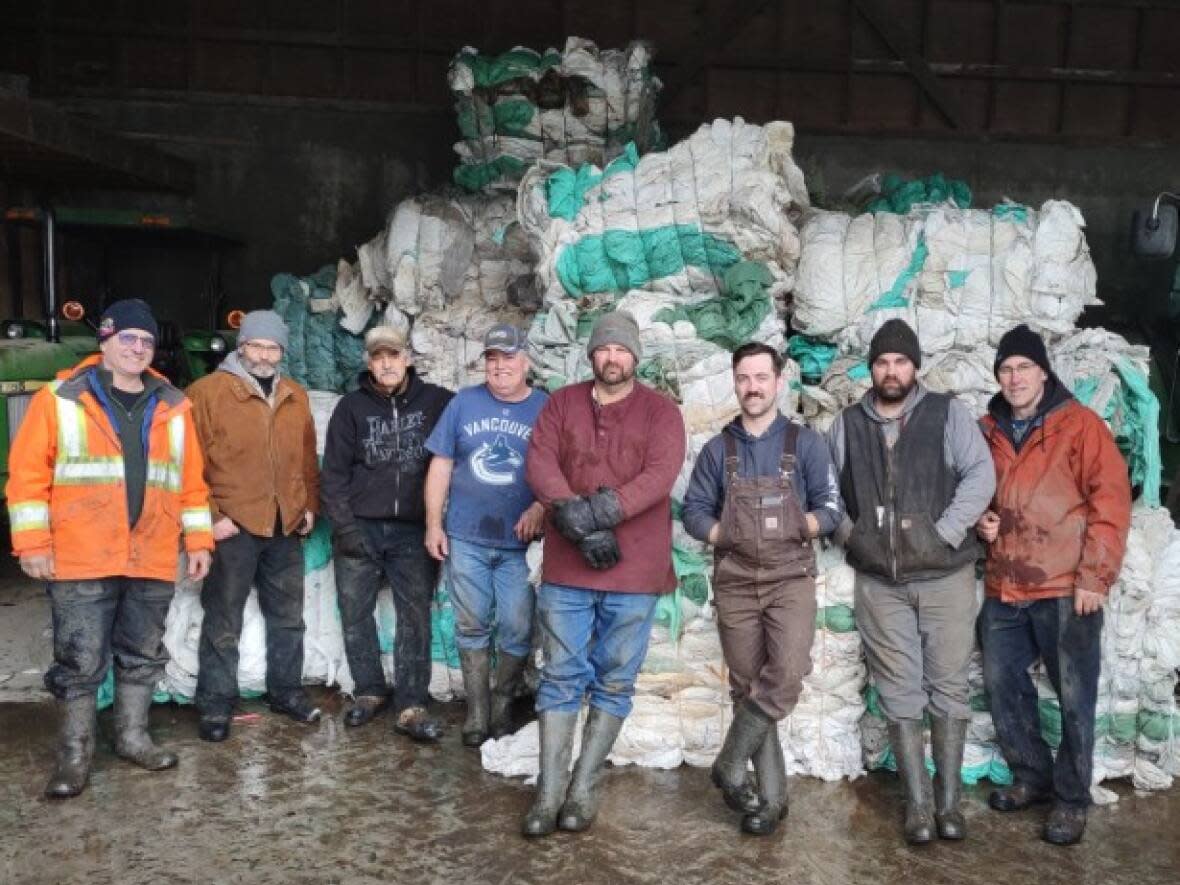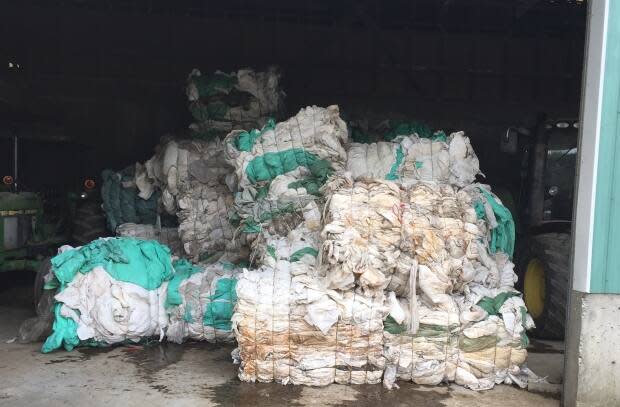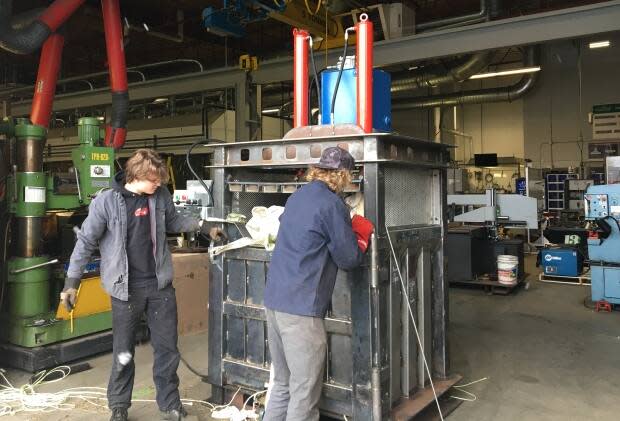Student innovation helps Fraser Valley farmers tackle weighty plastic problem

Farmers in Agassiz, B.C. finally have a solution to their thousand-tonne problem.
Agassiz farmer Gerald Struys says farms in the area accumulate about 1,200 to 1,400 tonnes of agricultural plastic every year — about the equivalent of 350 Asian elephants.
"It's important to find a way to recycle [the plastic] because just dumping in a landfill isn't doing any good," said Struys, who is also the chair of the Kent Ag Plastics society.
Agricultural plastic includes bale wrap and bunker covers used to preserve feed for farm animals. According to non-profit organization Cleanfarms, Canada produces nearly 62,000 tonnes each year, including 4,200 tonnes in B.C.
After multiple hurdles, Struys says local farmers are now able to easily handle and recycle their plastic, thanks to innovations from some University of the Fraser Valley (UFV) students and Cleanfarms.
"They've really been the go-getters for getting [the solution] going and keeping it going," he said.
Struys and other B.C. farmers now hope other communities will be inspired to tackle their plastic problem through community and youth engagement.
"If we can do this instead of just dumping it or burning it, that would help get to our net zero [goal]," Struys said.
Dairy Farmers of Canada has a goal to reach net zero carbon emissions by 2050.

Creating a solution
In the spring of 2022, Cleanfarms, an organization focused on helping Canadian farmers reduce waste, provided Agassiz's farmers with a single compactor. Compactors help farmers compress large plastics for easier transport and recycling.
But soon, one compactor wasn't enough and a team of UFV students was brought on to create a new one from scratch.
Pierce Stoeckly, a UFV technician who initiated the project, explained that agricultural plastic is often big, light and very fluffy, making it difficult to transport to recycling depots.
"The biggest problem is how to increase the weight," he said.
"Our students did a bit of research … and came up with a design in-house … that will compact the plastic to about a 500-kilogram bale."
Stoeckly said the students were able to test their compactor a few weeks ago at the community's biannual plastic collection day.
They compressed nearly 70 bales of plastic in 10 hours, and then Cleanfarms helped transport it to a recycling depot.
Once there, the plastic is turned into pellets to make fence posts and patio planks, according to Struys.
"We really put [the machine] through its paces and based on the information we learned there, [students] are going to make a few slight modifications," Stoeckly said.

'Icing on the cake'
Struys says the community was happy to see youth interested in resolving the farmers' problem. He hopes this will encourage other farmers in the area to consider recycling their plastics.
"We're going to be contacting the rest of the farms to see if they would be willing to get on board … because in the long run it's keeping [the plastic] out of the landfill," Struys said, adding the community has recycled nearly 700 tonnes of plastic in the past year.
For the folks at Cleanfarms, this type of community engagement is what they hope to see happen across the country with other farming communities.
"It's really unique how the farmers engaged a university," said Kim Timmer, director of stakeholder relations and policy at Cleanfarms.
"Getting students involved, it's really icing on the cake, because now the next generation is learning about different aspects of farming."
Cleanfarms is working to send at least one compactor to each farming community in Canada, with Agassiz in line to receive 10 more to reduce potential biohazard issues and any transfer of disease from farm to farm.


